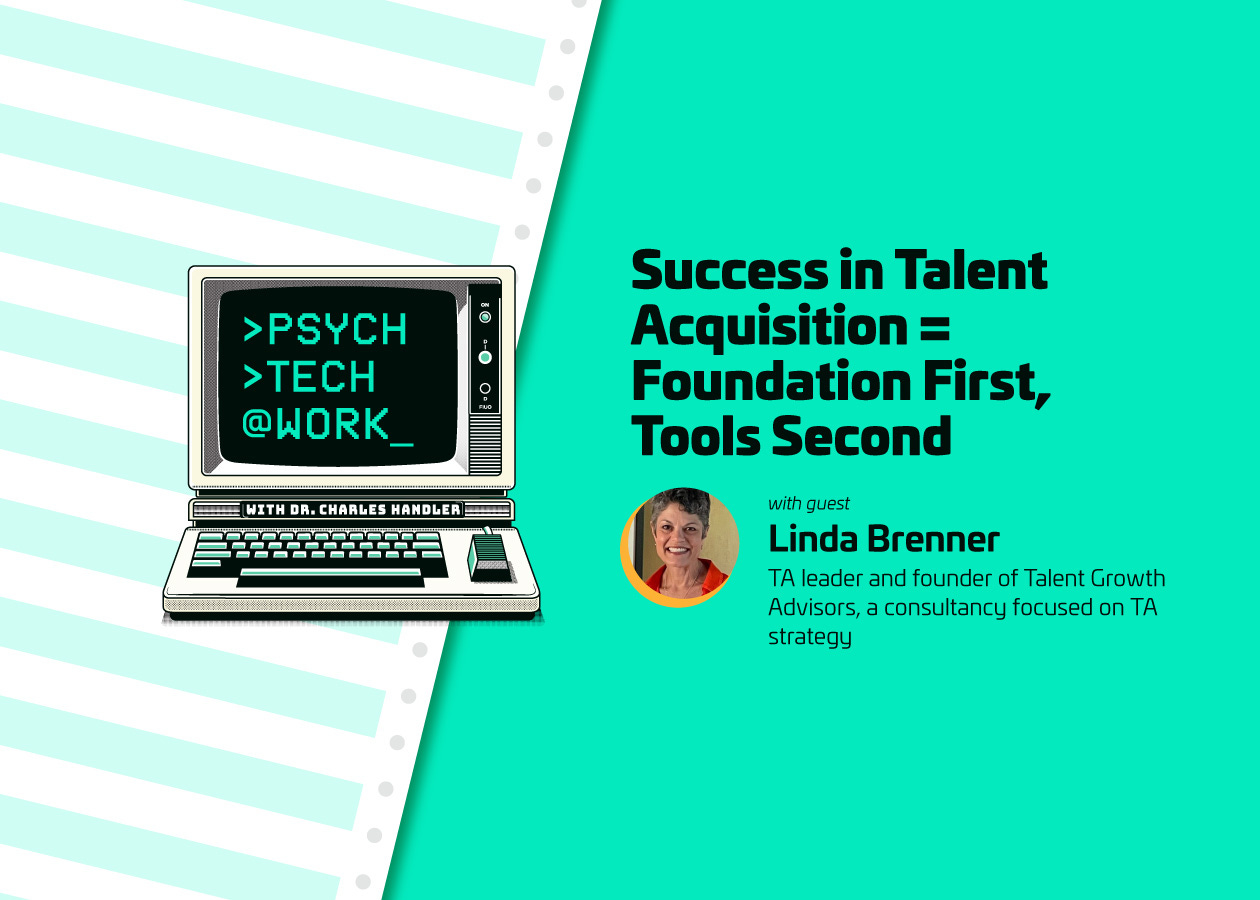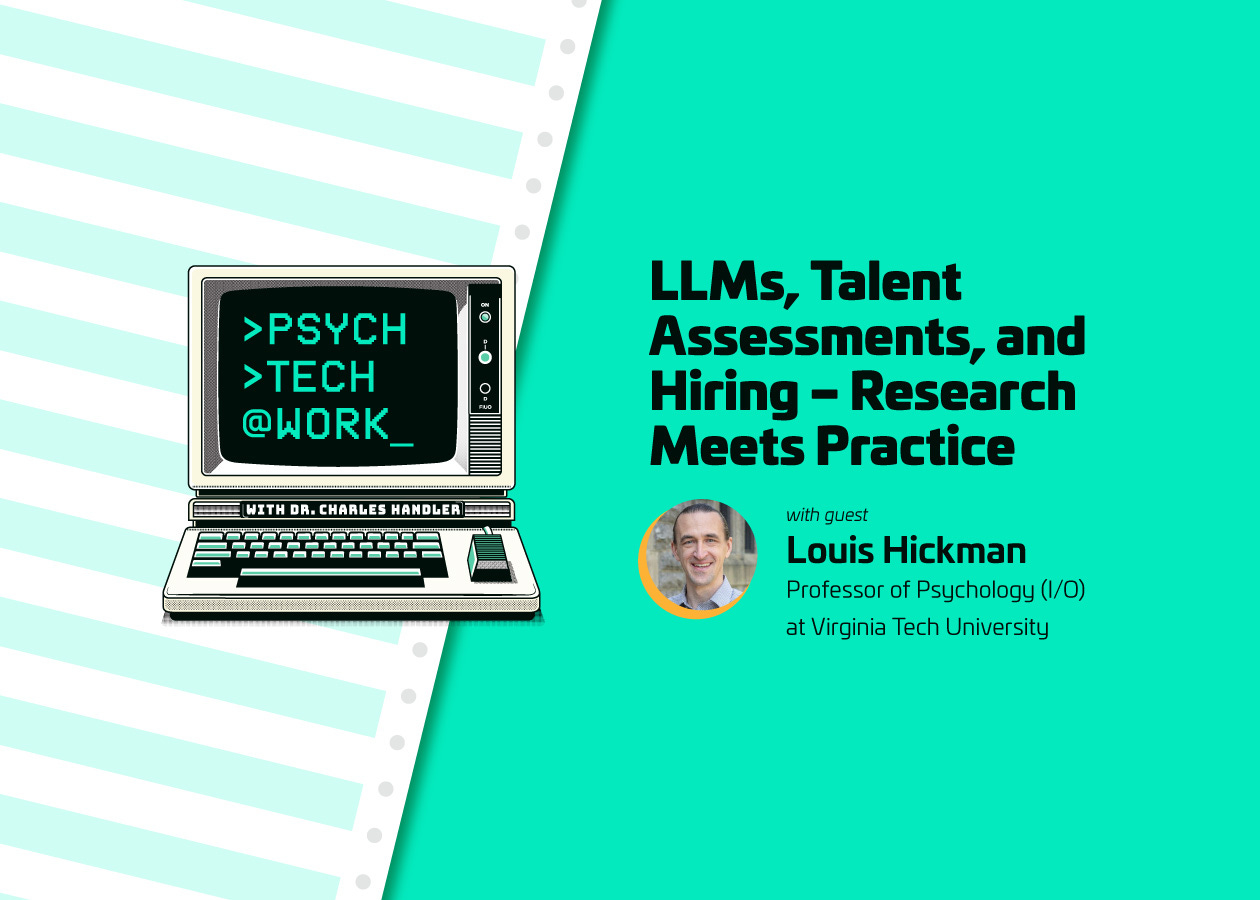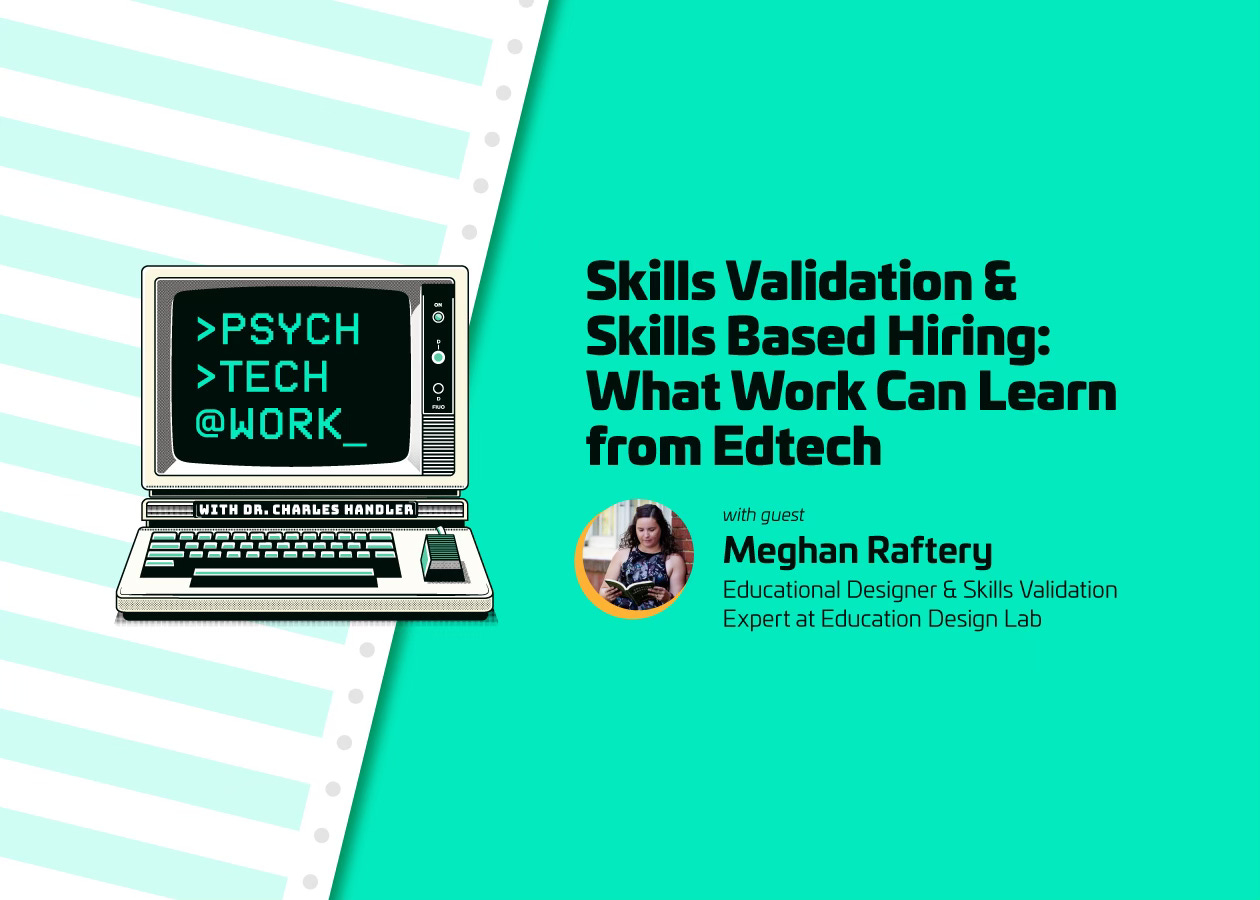Organizational Justice Theory and Fairness in the Workplace. With Stephen Gilliland
Update: 2024-06-20
Description
"Organizational justice is about ensuring that every individual feels they are treated fairly and with respect in all aspects of their work. It’s not just about the outcomes they receive, but how those outcomes are decided and communicated. Fair processes and respectful treatment are fundamental to maintaining trust and equity within any organization." -Stephen Gilliland
Summary: In this episode of "Psych Tech @ Work," Steven Gilliland, a distinguished professor and expert in organizational justice, joins me to explore the profound impact of fairness on hiring and the psychology of the workplace. Stephen was my professor when I was in grad school at LSU, so I know him well and was lucky to have exposure to organizational justice theory during my most formative years.
After taking a stroll down memory lane, we have an amazing conversation about the fundamental principles of organizational justice theory. We discuss how perceptions of fairness in outcomes, processes, and interpersonal treatment shape employees’ attitudes and behaviors. We talk about how organizations can ensure fair treatment during hiring and how these practices influence applicants’ decisions and organizational reputation. We also dig into the broader implications of fairness in the workplace, emphasizing how companies can navigate challenging decisions, like layoffs, while maintaining their commitment to justice. Finally, we discuss the evolving role of technology in shaping justice perceptions in the workplace. Stephen provides insights into how AI and digital tools are transforming the landscape of organizational justice, offering both opportunities and challenges.
Take Aways:
This is a public episode. If you would like to discuss this with other subscribers or get access to bonus episodes, visit charleshandler.substack.com
Summary: In this episode of "Psych Tech @ Work," Steven Gilliland, a distinguished professor and expert in organizational justice, joins me to explore the profound impact of fairness on hiring and the psychology of the workplace. Stephen was my professor when I was in grad school at LSU, so I know him well and was lucky to have exposure to organizational justice theory during my most formative years.
After taking a stroll down memory lane, we have an amazing conversation about the fundamental principles of organizational justice theory. We discuss how perceptions of fairness in outcomes, processes, and interpersonal treatment shape employees’ attitudes and behaviors. We talk about how organizations can ensure fair treatment during hiring and how these practices influence applicants’ decisions and organizational reputation. We also dig into the broader implications of fairness in the workplace, emphasizing how companies can navigate challenging decisions, like layoffs, while maintaining their commitment to justice. Finally, we discuss the evolving role of technology in shaping justice perceptions in the workplace. Stephen provides insights into how AI and digital tools are transforming the landscape of organizational justice, offering both opportunities and challenges.
Take Aways:
- Treat Applicants as Customers: Consider the hiring process from the applicant's perspective. Fair treatment during this phase can significantly impact their decision to join your organization and their perception of your brand.
- Understand the Role of Fairness in Employee Engagement: Perceptions of fairness in hiring and workplace practices contribute to overall employee engagement and satisfaction. Ensure that decisions and processes are consistently fair to foster a positive work environment.
- Adapt Organizational Justice to Technological Changes: As workplaces evolve with technological advancements, continuously revisit and adapt your organizational justice practices to address new challenges and maintain fairness.
- Respond to Difficult Situations with Empathy: During tough times, such as layoffs, how you handle the situation reveals your organization's commitment to fairness. Strive to treat affected individuals with empathy and respect, maintaining open and honest communication.
- Align Actions with Psychological Contracts: Be aware of the unspoken agreements between employees and employers. Violating these expectations can lead to perceptions of unfairness and affect employee loyalty and engagement.
- Future-Proof Your Fairness Practices: Stay ahead of emerging trends by integrating fairness into your organizational strategy. Anticipate the impact of new technologies and societal changes on your justice practices to create a resilient and equitable workplace.
- Summary: This article explores how advanced AI technologies, like ChatGPT, are fueling the spread of conspiracy theories. It discusses the potential for AI to amplify misinformation and the challenges in managing these effects. The article suggests that as AI becomes more integrated into everyday life, there is an urgent need for radical transparency and robust measures to combat the spread of false information.
- Summary: This article addresses concerns that AI-driven hiring tools may unintentionally filter out qualified candidates due to biases in the algorithms or lack of transparency in decision-making processes. It highlights the growing reliance on AI for managing large volumes of applications and the need for regulations to ensure fairness and accuracy in these systems.
This is a public episode. If you would like to discuss this with other subscribers or get access to bonus episodes, visit charleshandler.substack.com
Comments
Top Podcasts
The Best New Comedy Podcast Right Now – June 2024The Best News Podcast Right Now – June 2024The Best New Business Podcast Right Now – June 2024The Best New Sports Podcast Right Now – June 2024The Best New True Crime Podcast Right Now – June 2024The Best New Joe Rogan Experience Podcast Right Now – June 20The Best New Dan Bongino Show Podcast Right Now – June 20The Best New Mark Levin Podcast – June 2024
In Channel





















